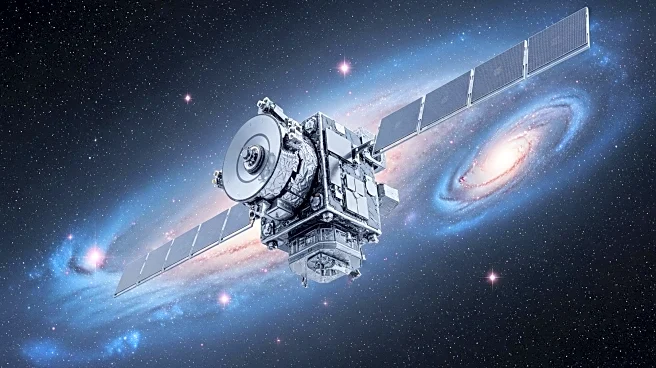What's Happening?
Amazon is set to launch its fifth batch of Kuiper broadband satellites, aiming to expand its constellation with 27 new satellites. The launch, designated KA-03, will occur aboard a ULA Atlas V rocket from Cape Canaveral. Amazon plans to deploy over 3,200 satellites as part of Project Kuiper, with future launches scheduled with ULA's Vulcan rocket, Arianespace, and Blue Origin. The company aims to provide broadband services in the U.S., Canada, Germany, France, and the UK by early 2026, with global coverage anticipated by 2028.
Why It's Important?
The expansion of Amazon's Kuiper satellite constellation is a significant development in the competitive satellite broadband market. By increasing its satellite count, Amazon aims to provide high-speed internet access to underserved regions, potentially transforming global connectivity. This initiative could challenge existing satellite internet providers like SpaceX's Starlink, fostering competition that may lead to improved services and lower costs for consumers. The project also highlights the growing importance of satellite technology in bridging the digital divide and supporting economic development in remote areas.
What's Next?
As Amazon continues to build its Kuiper constellation, the company will focus on launching additional satellites and expanding its service coverage. The collaboration with multiple launch providers, including ULA, Arianespace, and Blue Origin, will be crucial in achieving its deployment goals. The success of these launches will determine the timeline for service rollout and global coverage. Stakeholders, including governments and telecom companies, may monitor the project's progress and explore potential partnerships or regulatory considerations to support the expansion of satellite broadband services.
Beyond the Headlines
The deployment of large satellite constellations raises concerns about space debris and the sustainability of space operations. As more companies launch satellites, the risk of collisions and the need for effective space traffic management increase. Addressing these challenges will require international cooperation and the development of policies to ensure the long-term viability of satellite operations. Additionally, the environmental impact of increased satellite launches and the potential for light pollution may prompt discussions on balancing technological advancement with environmental stewardship.










